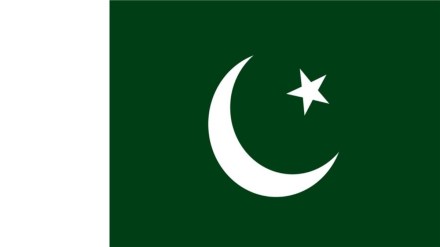India is closely monitoring the forthcoming elections in Pakistan scheduled for February 8. The heightened alertness stems from the participation of Hafiz Talha, the son of India’s most wanted terrorist, Hafiz Saeed, in the electoral process. The potential implications of such individuals gaining power in Pakistan’s governance are indeed worrisome.
The political outfit associated with India’s most-wanted terrorist, Hafiz Saeed, has undergone a transformation in preparation for the Pakistani elections. It’s striking to observe Pakistan’s determination to proceed with its electoral proceedings despite facing international censure over terrorism issues. The candidacy of a known terrorist in the upcoming Pakistani elections is a shocking reality.
Democracy Vs Militarocracy
According to Ambassador Anil Trigunayat says: “In my view it will be useful to distinguish between democratic ‘elections and selection by the real rulers in Rawalpindi. This time the fact that leaders and certain political parties who chose to confront the military leadership are behind bars speaks for itself. Democracy Vs Militarocracy is unfortunately the dictum in Pakistan for ever.”
Adding, “All the same having some sort of elections is better than not having any. Let’s see how the predictability plays it out.”
New Political Party & Candidates
A new political entity, dubbed the ‘Markazi Muslim League,’ has emerged to contest Pakistan’s general elections. Rumours suggest that this party, allegedly linked to Hafiz Saeed, the mastermind behind the Mumbai attacks (26/11) and the leader of Lashkar-e-Taiba, is contesting the elections under a new identity to evade sanctions. According to reports, Markazi represents the new face of the Muslim League and is aligned with Hafiz Saeed’s Jamaat-ud-Dawa. This organization has put forth candidates in various Pakistani cities, some of whom are relatives of Hafiz Saeed, while others have connections to banned terrorist groups like Lashkar-e-Taiba, Jamaat-ud-Dawa, or the Milli Muslim League.
Hafiz Talha Saeed, the son of Hafiz Saeed, is running for office under the Markazi Muslim League Party and has filed his nomination from constituency number NA-122 in Lahore. Simultaneously, former federal minister Khawaja Saad Rafiq is contesting from the same constituency on behalf of Nawaz Sharif’s party, Pakistan Muslim League. Additionally, the Markazi Muslim League has fielded Hafiz Nek Gujjar, Hafiz Saeed’s son-in-law, as a candidate.
Notably, individuals declared as “International Terrorists” by the US, including Saifullah Khalid, Muzammil Iqbal Hashmi, Mohammad Haris Dar, Tabish Qayyum, Faiyaz Ahmed Faisal Nadeem, and Mohammad Ehsan, are also part of the electoral competition. These individuals were accused of involvement with Lashkar-e-Taiba. Moreover, seven members of the Milli Muslim League, banned by the US, are contesting elections from Punjab and Sindh Assembly under the Markazi Muslim League banner.
Hafiz Saeed
Currently incarcerated in Lahore, he has been handed a 31-year prison sentence by Pakistan’s anti-terrorism courts. The United Nations designated him as a “global terrorist” in 2008. However, the participation of individuals associated with him in the electoral process not only adds intrigue but also sheds light on Pakistan’s situation. While former Prime Minister Imran Khan’s party faces challenges in this election, Nawaz Sharif’s party appears to be leading the 2024 general elections. In December, India demanded Pakistan to extradite Hafiz Saeed, considering him a wanted terrorist in connection with the 26/11 attacks.
According to Farwa Aamer, Director of South Asia Initiatives at the Asia Society Policy Institute, “As Pakistan gets ready to vote on February 8th, the country stands at a critical juncture, grappling with multifaceted challenges ranging from economic distress to security concerns, all exacerbated by a tumultuous political landscape.”
In her opinion the prevailing economic crisis has plunged the country into dire straits, with its ramifications felt across all sectors of society. Simultaneously, the deteriorating security situation underscores the urgent need for stability and effective governance. Amidst these pressing issues, the political turmoil that has besieged the nation in recent years has only served to impede progress and development—leaving much dependent on the elections and the new leadership.
“The incarceration of former Prime Minister Imran Khan, a polarizing yet influential figure, has dominated both domestic and international discourse. His multiple convictions, including the recent ruling declaring his marriage unlawful, have captivated global attention, in some ways overshadowing discussions on the democratic integrity of the upcoming elections,” she states.
Also, the political landscape remains fraught with allegations of early electoral rigging and crackdowns on Khan’s Pakistan Tehreek-e-Insaf (PTI) party as well as scuffles between other contesting parties. This casts a shadow of doubt over the fairness and transparency of the electoral process, raising concerns about the legitimacy of the eventual outcome.
“As speculation mounts, former Prime Minister Nawaz Sharif emerges as a frontrunner, signalling a potential return to power for the seasoned politician. However, the spectre of electoral malpractice looms large, and anticipating the aftermath, the prospect of widespread protests and civil unrest cannot be ruled out, presenting a formidable challenge to the country’s fragile security apparatus. Moreover, the perennial instability in governance, marked by the inability of elected parties to complete full terms, means that the new leadership should recognize the need for institutional reform and political consolidation. However, achieving this goal presents a considerable challenge, given the significant influence wielded by the military in shaping the country’s overall dynamics,” she adds.
On the international stage
In her view, “Pakistan’s strategic significance faces mounting scrutiny, as its geopolitical relevance wanes amidst shifting alliances and global dynamics. With key stakeholders such as the United States, China, and Gulf states closely monitoring developments, the need for astute diplomatic leadership capable of navigating these intricate relationships becomes imperative.”
